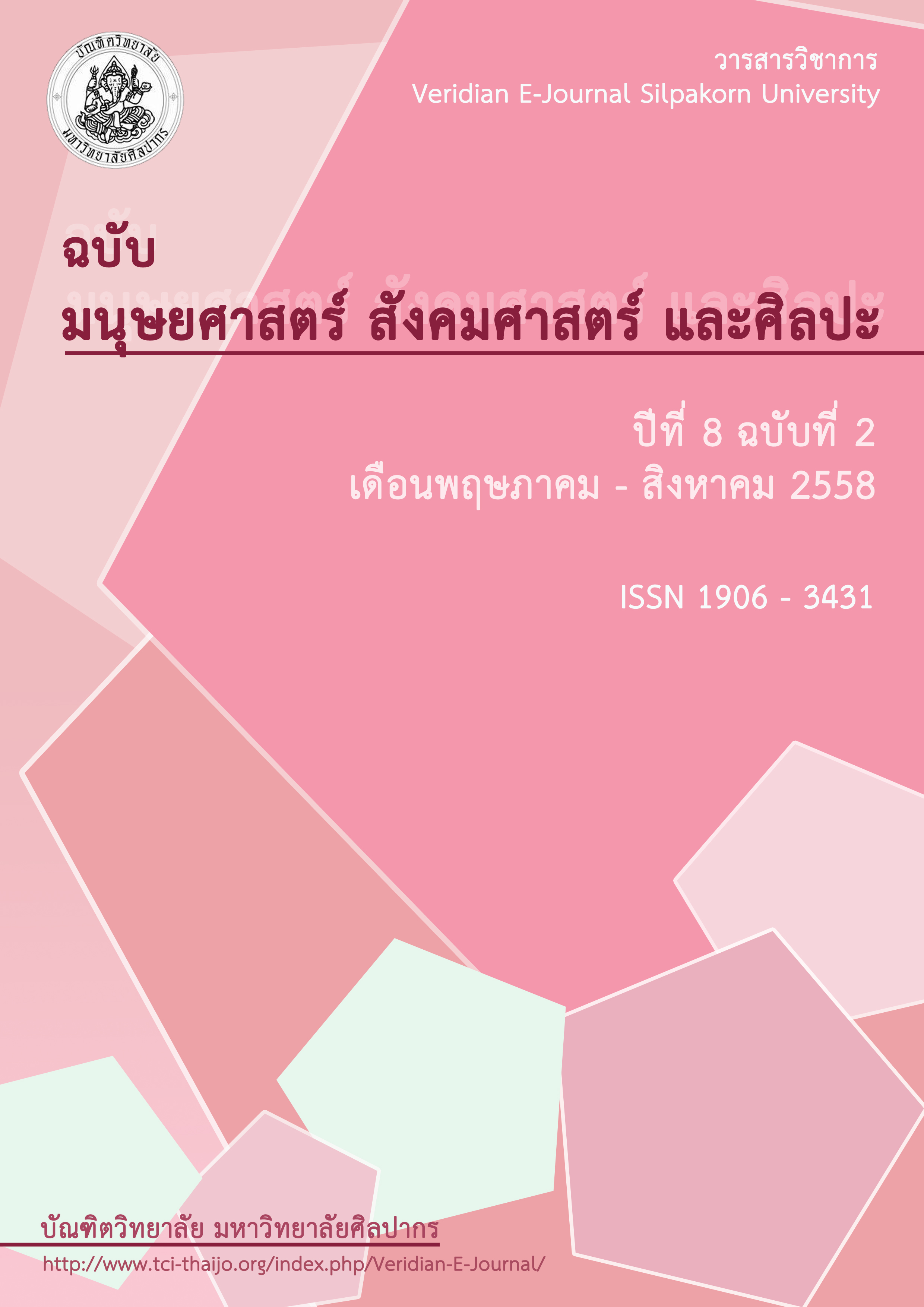ปัจจัยที่จำกัดประสิทธิผลของมาตรการลงโทษทางเศรษฐกิจของสหรัฐอเมริกาต่อพม่า (ค.ศ. 1988-2008)
Main Article Content
Abstract
บทคัดย่อ
บทความนี้วัตถุประสงค์เพื่อวิเคราะห์ถึงปัจจัยที่จำกัดประสิทธิผลของมาตรการลงโทษทางเศรษฐกิจของสหรัฐอเมริกาต่อพม่า (ค.ศ. 1988-2008) ในฐานะเครื่องมือในการดำเนินนโยบายต่างประเทศของสหรัฐอเมริกาผ่านแนวคิดทฤษฎีระบบโลกใหม่ (Modern World System Theory) ของศาสตราจารย์ อิมมานูเอล วอลเลอร์สไตน์ (Immanuel Wallerstein) แห่งมหาวิทยาลัยเยล
ผลการศึกษาพบว่า สหรัฐอเมริกาไม่สามารถดำเนินมาตรการลงโทษทางเศรษฐกิจต่อพม่าได้อย่างมีประสิทธิผล เพราะต้องเผชิญกับปัจจัยอันเป็นข้อจำกัด ดังนี้ (1)ปัจจัยจากฝ่ายพม่าในฐานะรัฐบริวารประกอบด้วยการพึ่งพาทางการค้าต่อสหรัฐอเมริกาในระดับที่ต่ำมาก การได้รับความช่วยเหลือจากจีนและอาเซียน และความเข้มแข็งของระบอบเผด็จการทหารพม่า (2) ปัจจัยจากตัวสหรัฐอเมริกาเองในฐานะรัฐศูนย์กลาง กล่าวคือ สหรัฐอเมริกาไม่ได้ให้น้ำหนักความสำคัญต่อพม่าในฐานะผลประโยชน์แห่งชาติเป็นประการสำคัญ ดังนั้น สหรัฐอเมริกาจึงกำหนดมาตรการลงโทษทางเศรษฐกิจต่อพม่าเพียงเพื่อตอกย้ำภาพลักษณ์ในฐานะรัฐมหาอำนาจที่ยึดมั่นในหลักประชาธิปไตยและสิทธิมนุษยชน และหลบเลี่ยงการแบกรับต้นทุนที่เพิ่มมากขึ้นจากการดำเนินมาตรการทางทหารเช่นเดียวกับที่สหรัฐอเมริกาดำเนินต่ออิรัก นอกจากนี้ ยังพบว่าสภาคองเกรสยังเลี่ยงการผ่านรัฐบัญญัติที่จะก่อให้เกิดผลกระทบทางเศรษฐกิจต่อบริษัทข้ามชาติสัญชาติอเมริกันที่ลงทุนในพม่าด้วย
คำสำคัญ: มาตรการลงโทษทางเศรษฐกิจ, สหรัฐอเมริกา, พม่า, ระบบโลกใหม่
Abstract
The purpose of this article was to analyze factors which contributed to the limitation in imposing the economic sanctions; a foreign policy tool, of the U.S. towards Myanmar. The Modern World System Theory by Professor Immanuel Wallenstein, Yale University, was applied as a framework.
The study found two factors which resulted in ineffectiveness in imposing the policy. Firstly, the U.S. did not truly play important roles to the economy of Myanmar, as the periphery state. The economic relationships between the U.S. and Myanmar were in the low-level of trade interdependence. Also Myanmar could turn to China and ASEAN as partnerships. Moreover, the Authoritarian regime was still powerful. Secondly, the U.S., as a core state, was also the cause of factors. Myanmar was not a top priority for U.S. national interests. The U.S. was likely to impose economic sanctions to show the role of superpower which respected democracy and human rights. This also protected the U.S. from wasting money on military mission as in the Iraq case. Additionally, the Congress avoided enacting the legislative which in return would affect the U.S. multinational companies in Myanmar.
Keywords: Economic Sanctions, U.S., Myanmar, Modern World System Theory
